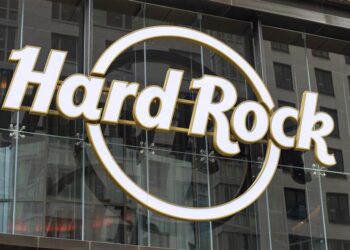When analysts talk about a ‘credit crunch’ facing high roller gamblers from Mainland China, it may unwittingly be a euphemism for ‘their betting agent has been busted back home’.
Betting agents are in effect the oil that keeps the wheels of Macau’s VIP gambling juggernaut turning, in terms of providing credit and organising collection of debts. Within Mainland China, though, they operate in what is at best a legal grey area. They are vulnerable to occasional hostile regulatory action by the police and judicial system, especially if they advance money to someone who later dips in to public funds to pay off the debt.
In the good times there were enough creditworthy high rollers to ensure profits all round. In leaner times some of the more ambitious (or less scrupulous) betting agents may be taking on higher risk clients and risking the subsequent fall out this can create.
We mention this because of an item filed by Xinhua, China’s official news agency, which caught our attention earlier this week. It was about the arrest of what the media outlet described as a ‘gang’ but what sounded suspiciously to Asian Gaming Intelligence like a typical betting agent network of the sort often tolerated if not actually condoned by the Mainland authorities.
The report said the ‘gang’ had 18 business development agents and aimed its services at wealthy Chinese business people wishing to gamble in casinos outside the country’s national borders (including the Special Administrative Region of Macau). Yep, that sounds like a betting agent scheme alright. The report added the scheme had 125 members, providing turnover worth 20 billion yuan. That’s the equivalent of USD2.9 billion, although it seems this may have been spread over more than one year. Nonetheless the police action means Macau and other Asian jurisdictions are likely to have lost some heavy hitting customers in the high stakes baccarat market. The removal of their business will certainly feed through to the casinos’ bottom lines at some stage this year unless the VIPs manage to hook up with new agents pretty sharply. Coincidentally gross revenue for VIP baccarat fell 20.1% year-on-year in the first quarter of 2009 to USD2.1 billion.
Xinhua said the detection of the high roller ‘gang’ came about because of a separate sting operation against a betting syndicate linking Mainland customers with online betting sites and sports books outside the country. That involved five schemes worth an additional 30 billion yuan according to police sources.
A spokesman for the Mainland’s Public Security Bureau was quoted as saying: “Through the detection of the five cases, police found clues to another gambling gang, which organised gamblers in casinos in Macau, Taiwan [where incidentally there are no legal casinos], the Philippines, Singapore [ditto] and Malaysia, and lent out money at high interest rates to gamblers.”
Xinhua said the alleged gang’s leader, whom it named as Liu Qingli, surrendered to the police in May. The clue as to why the Mainland authorities were more interested in this network of betting agents than they appear to be in some of the others may lie in the fact that public money was allegedly involved.
Xinhua added that one of the VIP agent’s customers, identified only as a manager of a coal mine in north China’s Shanxi province, gambled away HKD400 million (USD51.6 million) on a week-long trip to Macau in June last year.
China started cracking down on officials betting with public money last year by placing undercover police in Macau casinos. The move coincided with the rationing in the second half of 2008 of visas enabling Chinese citizens to visit Macau privately rather than in escorted tour groups.




































